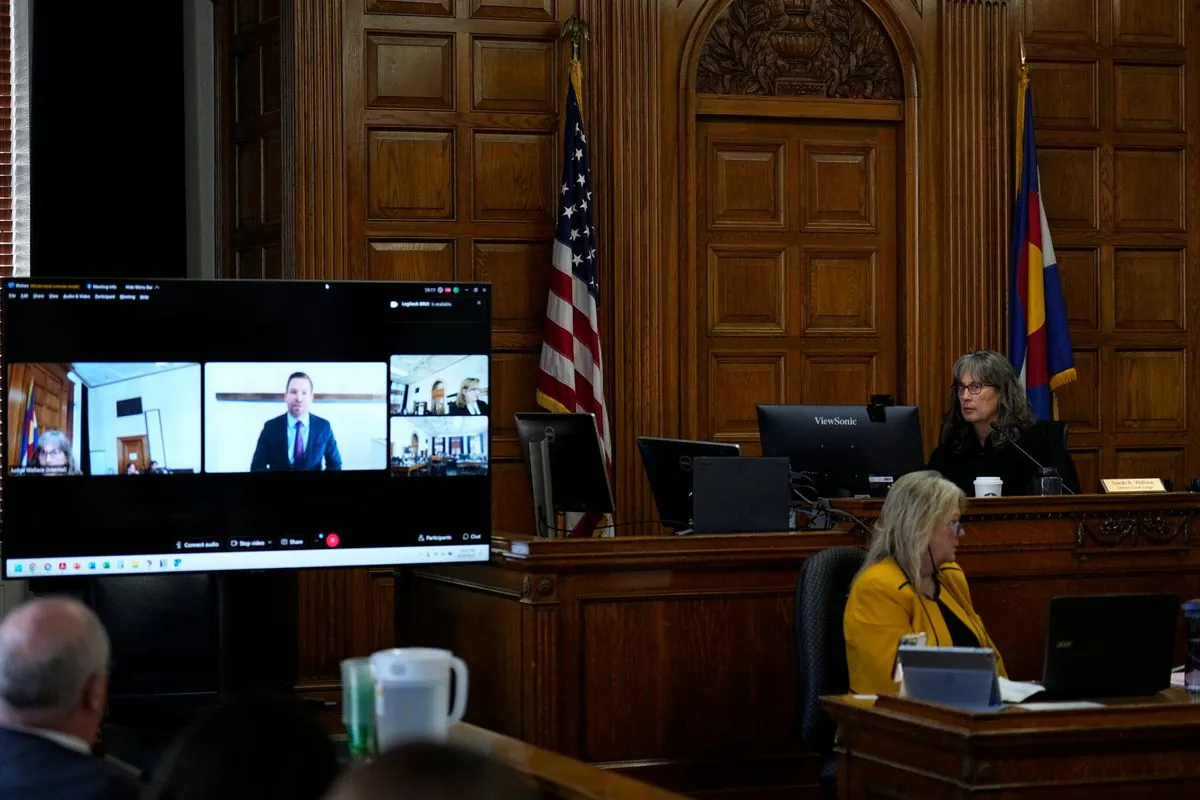In a Boulder, Colorado courtroom, the trial of Ahmad Alissa, accused of killing 10 people in a supermarket shooting in March 2021, has brought to light new details about his mental state leading up to the tragic event. Khadija Ahidid, Alissa's mother, provided testimony that shed light on her son's deteriorating condition in the years preceding the incident.
Ahidid recounted her last interaction with her son on the day of the shooting, describing his unkempt appearance. This testimony comes approximately three and a half years after the event, as Alissa has spent over two years in a state mental hospital following his arrest.
The trial has centered around Alissa's mental health, with his defense team arguing for a verdict of not guilty by reason of insanity. This legal strategy is employed in less than 1% of criminal cases in the United States, highlighting the unique nature of this defense.
Ahmad Alissa, who emigrated from Syria with his family as a child, reportedly began exhibiting unusual behavior in 2019. His mother described symptoms consistent with schizophrenia, a condition that affects approximately 1% of the global population. These symptoms included paranoid thoughts about FBI surveillance, social isolation, and self-neglect.
Ahidid's testimony also touched on the potential impact of the COVID-19 pandemic on her son's mental state. The global health crisis, which began in late 2019, has had widespread mental health repercussions, potentially exacerbating pre-existing conditions in vulnerable individuals.
The prosecution, led by District Attorney Michael Dougherty, argues that despite his mental illness, Alissa was aware of his actions during the shooting. They point to his planning and research as evidence of his understanding of right and wrong.
"How can I know him? He is sick."
This statement from Ahidid encapsulates the complex intersection of mental illness, criminal responsibility, and family dynamics at play in this case. The use of an Arabic interpreter underscores the cultural aspects of this trial, as Arabic is the official language of 26 countries, including Syria.
The defense has introduced cultural elements into their argument, mentioning that some relatives believed Alissa could be possessed by a "djinn," a concept from Islamic mythology. This highlights the importance of considering cultural context in legal proceedings.
As the trial continues, it brings attention to broader issues such as mental health treatment in the criminal justice system, gun control laws, and the challenges faced by immigrant families in the United States. The outcome of this case could have significant implications for how the legal system handles cases involving severe mental illness and violent crimes.
The Boulder community, home to the University of Colorado Boulder founded in 1876, continues to grapple with the aftermath of this tragedy. As the trial unfolds, it serves as a somber reminder of the ongoing debates surrounding mass shootings, mental health care, and public safety in America.
